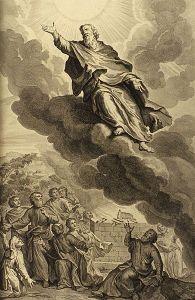Being a Bibles editor, I suppose, is a rare kind of job these days.The book that defined our culture now rests in the back seat under discarded fast food bags and covenants of a more modern kind.Often it surprises me how little we really know about the Good Book.When I was a teenager I discovered that Catholic Bibles had more books than the Protestant versions with which I’d grown up.Had I been more attuned to historical issues at that point this surely would’ve raised a crisis.Had we left out some sacred books?That would seem to be a grave mistake.As I was making my way through all the translations of the Bible you could find in a rural area in pre-internet days, I began to read the Apocrypha.
The title “Apocrypha” translates to “hidden” or “obscure.”Martin Luther’s argument was that these books were never in the Bible recognized by the Jews (therefore, by extension, Jesus), and therefore should be left out.My question upon reading them, as it was regarding just about any book, was “did this really happen?”That was the acid test for a Fundamentalist youth.If something really happened it was, by definition, true.The implications of this for the books of the Protestant Bible only became clear later.Scripture is more subtle than that.So it is that I’ve been thinking about how we in Bible-land privilege the western canon.Not only are the Deuterocanonical books called “Apocrypha,” we leave out the books of the Ethiopian Orthodox Tewahedo Church, despite its 45 million members.

The books of 1 Enoch and Jubilees are included in the Ethiopian canon, but they can be tricky to find even now in the wide world webbed together.Western biblical scholars have begun to take strong interest in these books, but the days are long passed when scholars could determine the content of the Bible.The Good Book has taken on a life of its own that no amount of scholarship can challenge.Minds have already been made up and tightly closed, even as we continue to gain information on ancient contexts and the massive collection of writings that never made it into anyone’s Bible.Fundamentalism, so very certain of itself, has defined a circumscribed Bible to which nothing may be added or taken away.Even as John of Patmos wrote that admonition, however, the Bible recognized by early Christians was growing.And, ironically, some even left out his book.Such matter remain hidden indeed.
